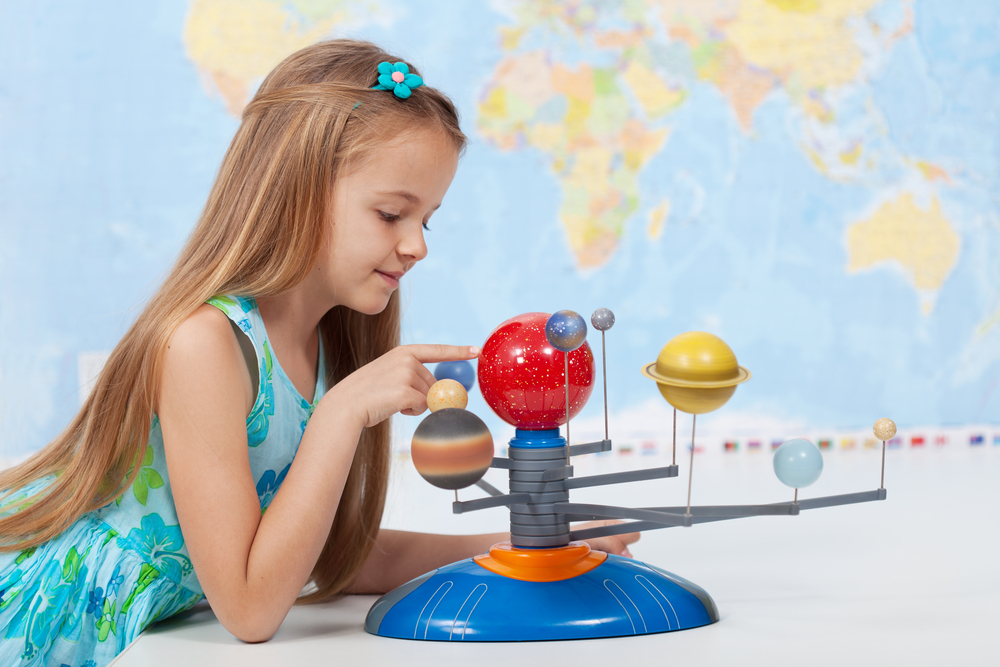Spatial awareness Normal Science Worksheets for Ages 5-6
5 filtered results
-
From - To
Discover our engaging Spatial Awareness worksheets for ages 5-6, designed to enhance children's understanding of spatial relationships and boost their cognitive development. These scientifically-formulated worksheets offer fun activities that challenge young learners to think about positions, distances, and directions. Perfect for early grade students, each task encourages problem-solving and critical thinking, foundational skills for future STEM learning. Spark curiosity with exercises that make learning enjoyable and interactive, setting your child on the path to academic success. Visit Kids Academy to access our printable worksheets and watch your children’s spatial awareness skills flourish!
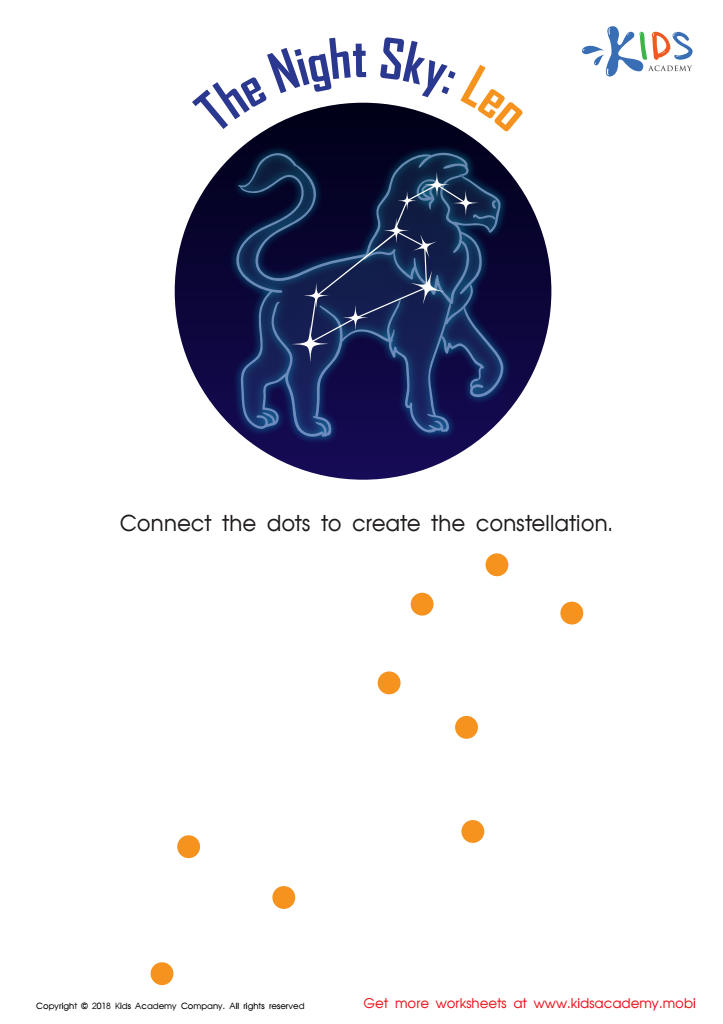

The Night Sky: Leo Worksheet
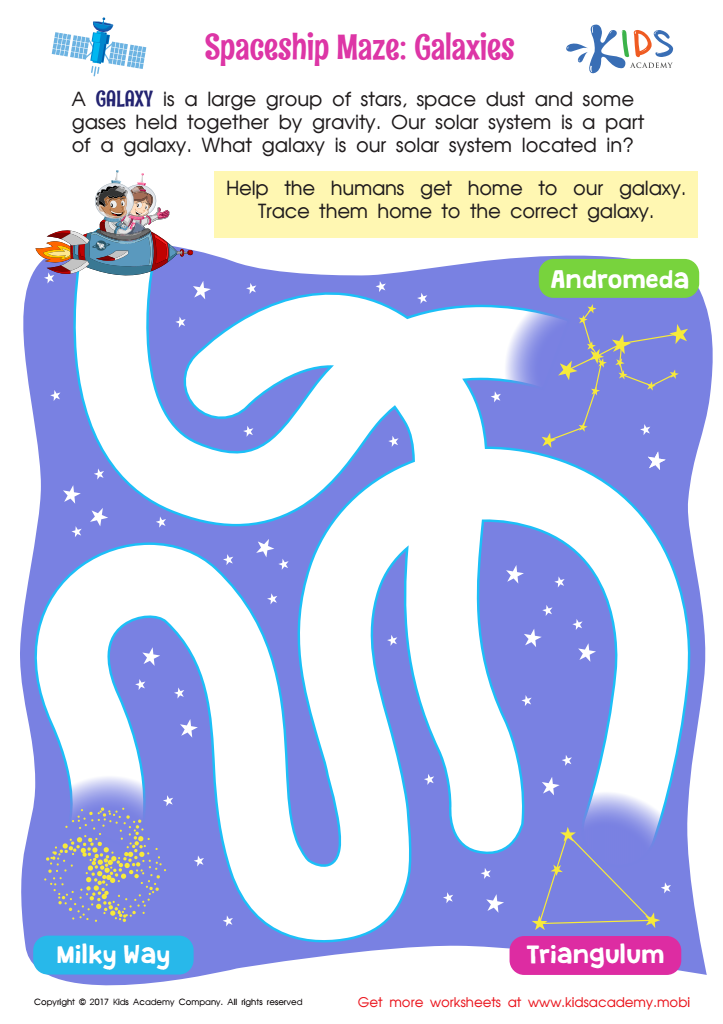

Spaceship Maze: Galaxies Worksheet
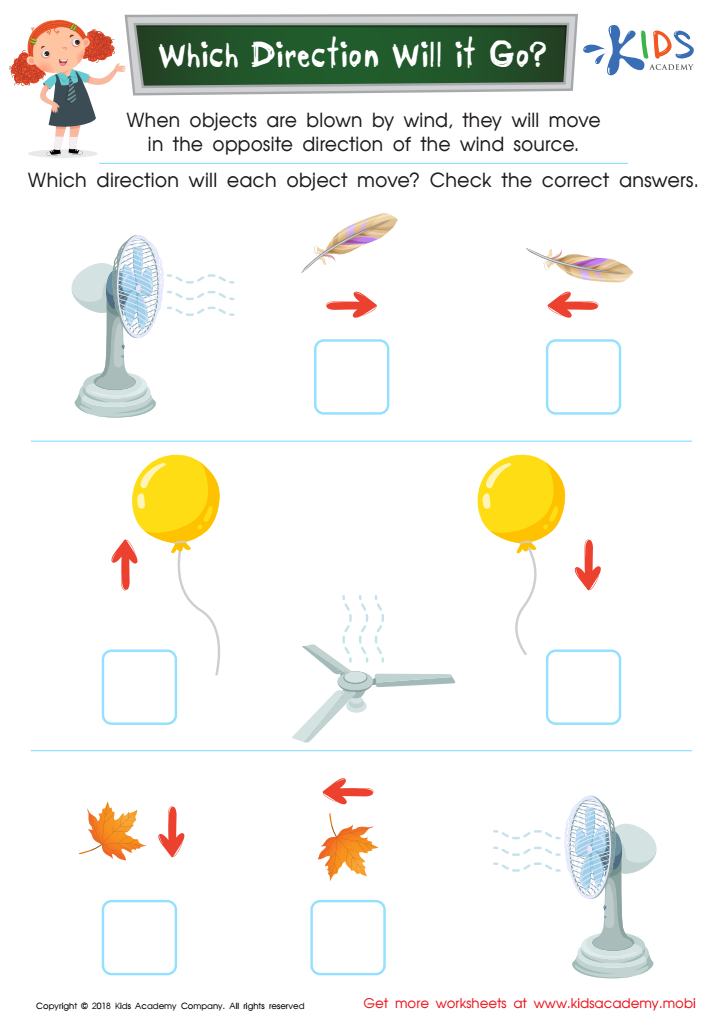

Which Direction Will it Go? Worksheet
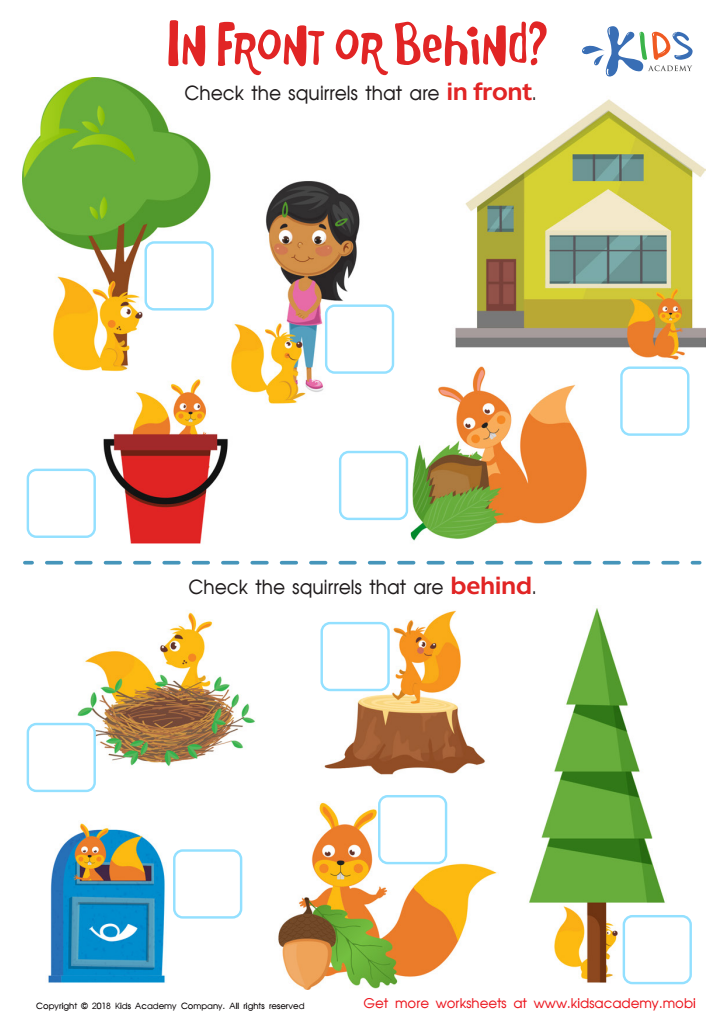

In Front or Behind: Part 2 Worksheet
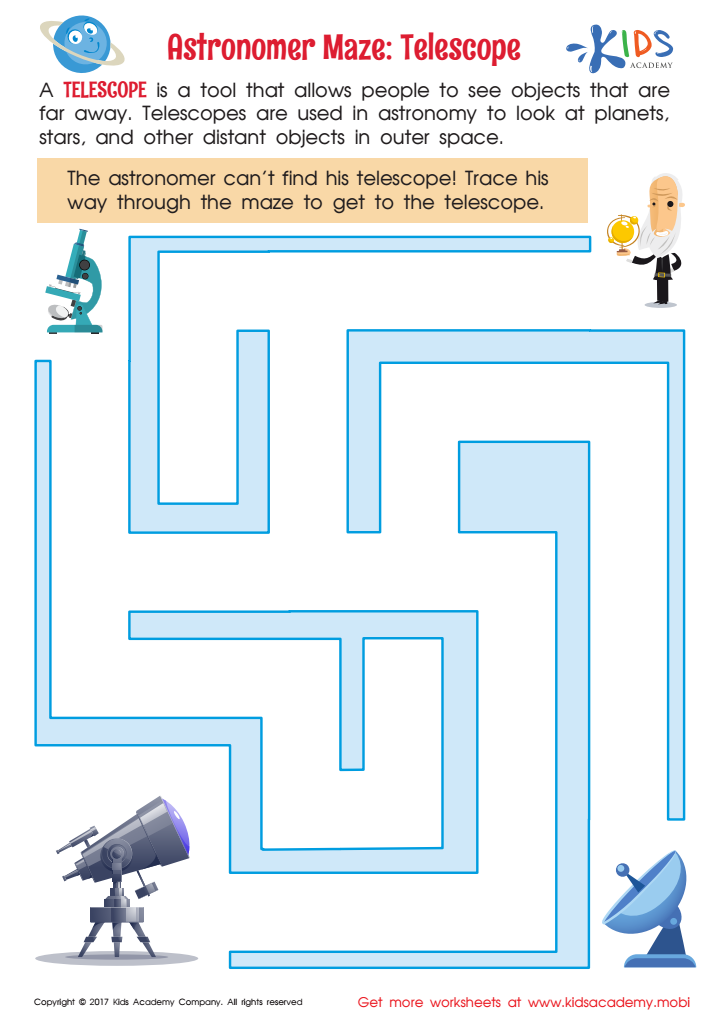

Astronomer Maze: Telescope Worksheet
Spatial awareness is a fundamental aspect of cognitive development, especially crucial for children aged 5-6, as it forms the basis for understanding and interacting with the world around them. Parents and teachers should prioritize fostering spatial awareness at this early stage for several reasons.
Firstly, spatial skills are closely linked to success in STEM (science, technology, engineering, and mathematics) disciplines. Children who develop strong spatial abilities are better equipped to grasp concepts in geometry, physics, and other sciences. These skills also support everyday activities, such as reading a map, assembling puzzles, or organizing objects.
Secondly, spatial awareness enhances problem-solving and critical thinking skills. By manipulating objects and visualizing changes, children learn to predict outcomes and think creatively to find solutions. This active engagement supports cognitive resilience and flexibility.
Moreover, spatial awareness is crucial for motor skills and physical coordination. Understanding one's body in relation to space aids in developing gross motor skills, such as running and jumping, and fine motor skills, like writing and cutting.
Lastly, fostering spatial skills can boost social and communication abilities. Activities involving spatial tasks often require cooperation and dialogue, helping children learn to express ideas and work collaboratively.
In summary, developing spatial awareness in early childhood lays a strong foundation for academic, physical, cognitive, and social growth, making it vital for overall development and future success.
 Assign to My Students
Assign to My Students





